
One month before a heart attack, the body may exhibit these 8 warning signs
Heart disease is the number one cause of death among Americans, followed by cancer. Knowing the symptoms of a heart attack can help to prevent it or identify it early to get the appropriate medical care.

Credit: Freepik
According to a study from the American Heart Association, your body might give you some signs a month or weeks before experience a heart attack. Identifying these symptoms can make a huge difference to take care of your health. Acting in advance could prevent an impending heart attack, especially if there are preempting risk factors conditions like high blood pressure, diabetes or high cholesterol.
Jean C. McSweeney, Ph.D., and a professor at the University of Arkansas for Medical Sciences in Little Rock stated in the study that, while these specific symptoms might not be accurate in predicting a heart attack,
"The appearance of these symptoms, in conjunction with women's standard cardiovascular risk factors, may assist providers in determining at-risk women who should undergo cardiovascular diagnostic tests.”
This list is not intended to make you become a hypochondriac, but to be more alert and aware of the signs your body is sending.
Eight warning signs
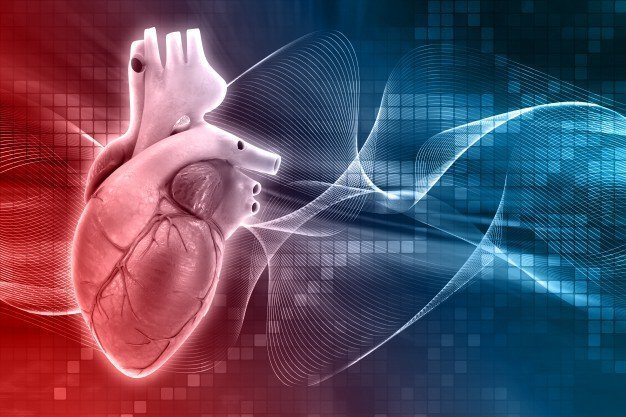
Credit: Freepik
1. Fatigue:
Extreme or unusual fatigue can be a sign of an impending heart attack. While it may be normal to feel fatigue caused by sleep or tiredness, the kind we’re talking about here implies being exhausted after carrying out some of the normal or simplest of tasks of your daily life, like tending the bed or taking a shower. The study showed that 70 percent of women that had suffered a heart attack mentioned feeling fatigue in the weeks leading up to it.
2. Stomach or Abdominal pain
Some women might feel abdominal or stomach pain, nausea, bloating, and other digestive issues that can be signs of alert when observed in a broader picture with other symptoms.
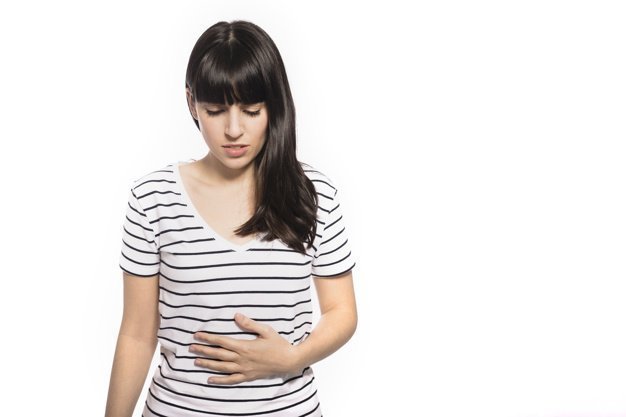
Credit: Freepik
3. Insomnia or sleep disturbance
This condition generally affects more women than men, and anxiety and absentmindedness can accompany it. These disturbances may involve: difficulty getting to sleep, unusual waking throughout the night and feeling tired despite getting enough sleep.
4. Shortness of breath
Also known as dyspnea, this can cause individuals to experiment a lack of air or heavy breathing without previous exertion, and when accompanied by chest pains or fatigue, it can be a sign of heart disease.
5. Hair loss
Losing your hair can be a visible sign of heart disease, but only if it's from the top of the head. This mostly applies to men, since loss hair is associated with increased sensitivity to testosterone, diabetes or chronic inflammation, all of which increase the risk of heart disease, according to studies published on The Independent.
6. Irregular heartbeat
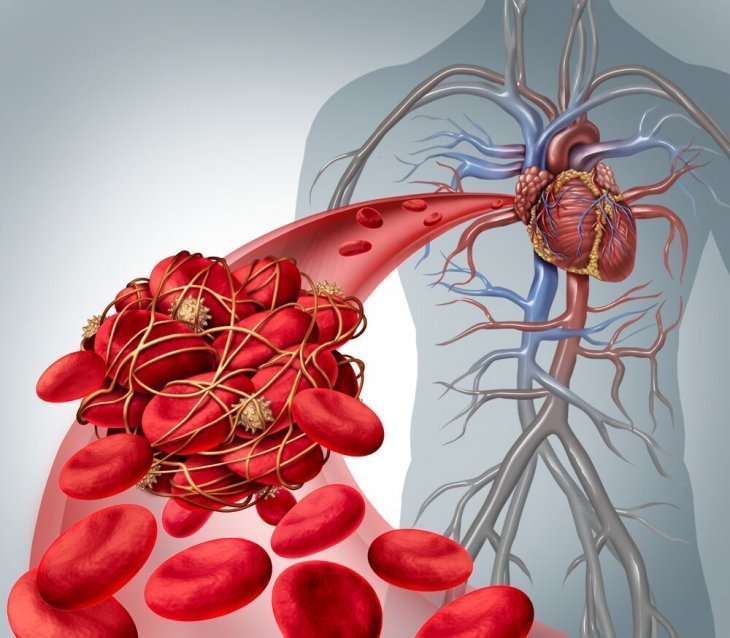
Credit: Freepik
Unexplained episodes of irregular, rapid heartbeat and pulse can help prevent a heart attack by weeks or months. While this symptom is easy to be confused with a panic attack, the difference relies on the suddenness of its appearance. Your heart might feel as if you have run miles without and obvious trigger for the acceleration.
7. Unusual or excessive perspiration
Excessive sweating may be a pivotal symptom to prompt future heart attack victims to seek treatment. It may occur at any time of the day, and it affects more women than men and is usually confused with typical signs of menopause. Despite the temperature being down, flu-like symptoms, clammy skin, or sweatiness can be seen, damping the sheets at night, as reported by WebMD.
8. Chest and upper body pain
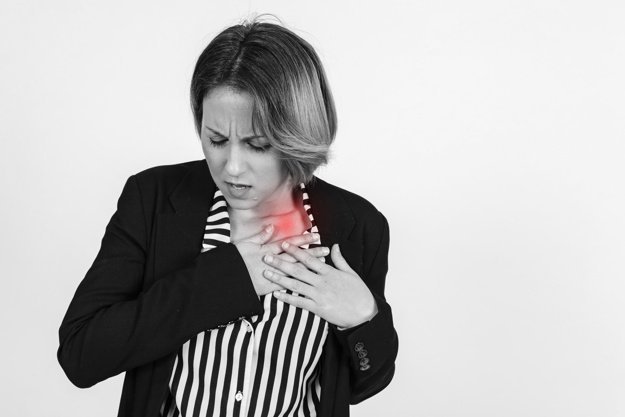
Credit: Freepik
This is perhaps the most telling symptom. But according to several studies, men tend to suffer chest pain more than women before and during a heart attack. The pain is usually described as a pressure feeling on the chest, and it might extend to the arms, neck, jaw and even teeth.
Why does African American face a higher risk of suffering heart attacks?
Is not a secret that African-Americans have higher rates of high blood pressure, high cholesterol, obesity, and diabetes, which at the same time are some of the significant risk factors for heart disease. According to the Center for Disease Control and Prevention, 57 percent of adult African-American women are obese, compared to 34 percent of non-Hispanic white women.

Credit: Pixabay
While genetics does play a role in some instances, is more likely that these statistics reflect the lifestyle that many people of color leads. This, of course, highly depends on social factors like socioeconomic status, education, environment, stress levels, culture, and history.
For example, stress caused by social or economic situations can be a determining factor on high blood pressure. Fresh products are rarely available to those with limited access, and it takes a lot of dedication, time and money, to lead a healthy lifestyle.
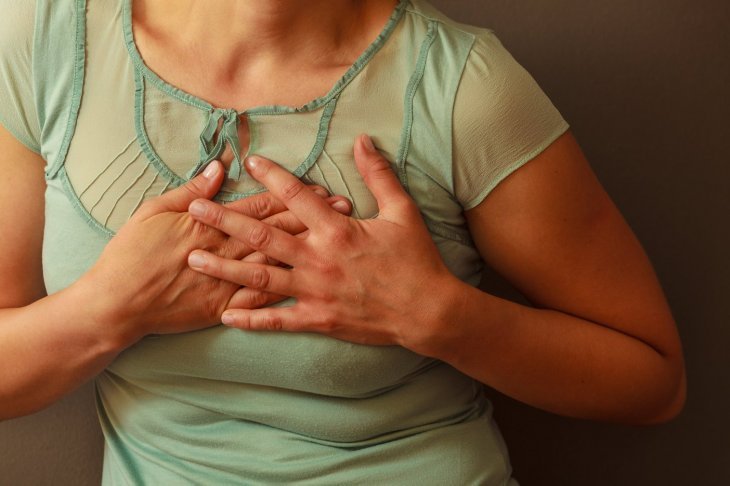
Credit: Shutterstock
However, is our responsibility to try and do our best to protect our health. Identifying the problem is the initial step, and following medical advice can help prevent surprises, especially when there’s a story of heart disease on the family.
Disclaimer: The information in this article is not intended or implied to be a substitute for professional medical advice, diagnosis or treatment. All content, including text, and images contained on, or available through Celebritist is for general information purposes only. Celebritist does not take responsibility for any action taken as a result of reading this article. Before undertaking any course of treatment please consult with your healthcare provider.
The information in this article is not intended or implied to be a substitute for professional medical advice, diagnosis or treatment. All content, including text, and images contained on news.AmoMama.com, or available through news.AmoMama.com is for general information purposes only. news.AmoMama.com does not take responsibility for any action taken as a result of reading this article. Before undertaking any course of treatment please consult with your healthcare provider.
